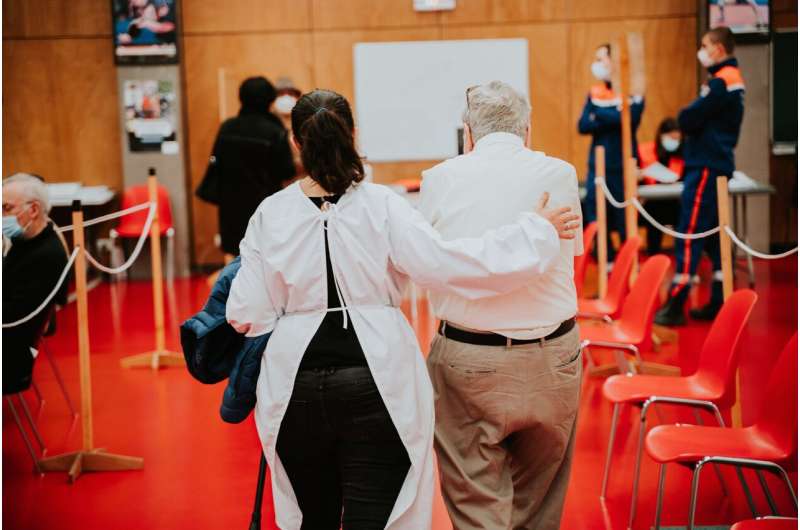
Two different COVID vaccines are predicted to be protective against a rapidly spreading variant of the SARS-Cov-2 virus that arose in California, reports a Duke Health-led research team. However, the vaccines were found to be less effective against a variant that first emerged in South Africa.
The finding, appearing April 7 as a research letter in the New England Journal of Medicine, tested blood serum samples from people who had received either the Moderna vaccine or a vaccine candidate from Novovax that is yet to be authorized in the U.S.
When the California variant was exposed to serum of people who received both required doses of the Moderna vaccine, a small decline in effectiveness occurred, but the vaccine remained strongly protective.
The researchers did not test the Pfizer-BioNTech vaccine, but they inferred that the findings for the Moderna vaccine would be comparable due to the similarities of the technology used in the two vaccines.
A vaccine candidate from Novovax—which is expected to be considered for FDA authorization in upcoming weeks—also performed well in the researchers’ tests against the variant that arose in California, which has spread rapidly throughout the United States and 25 other countries.
Both vaccines, however, saw significant drops in effectiveness against the variant first identified in South Africa, which remains a worrisome form of the virus.
“The good news is the California variant does not appear to be a problem for our current vaccines,” said author David Montefiori, Ph.D., professor and director of the Laboratory for AIDS Vaccine Research and Development in Duke’s Department of Surgery. “That’s important to know because this variant is now as prevalent in the U.S. as the U.K. variant, both of which appear to be more contagious.”
Source: Read Full Article
